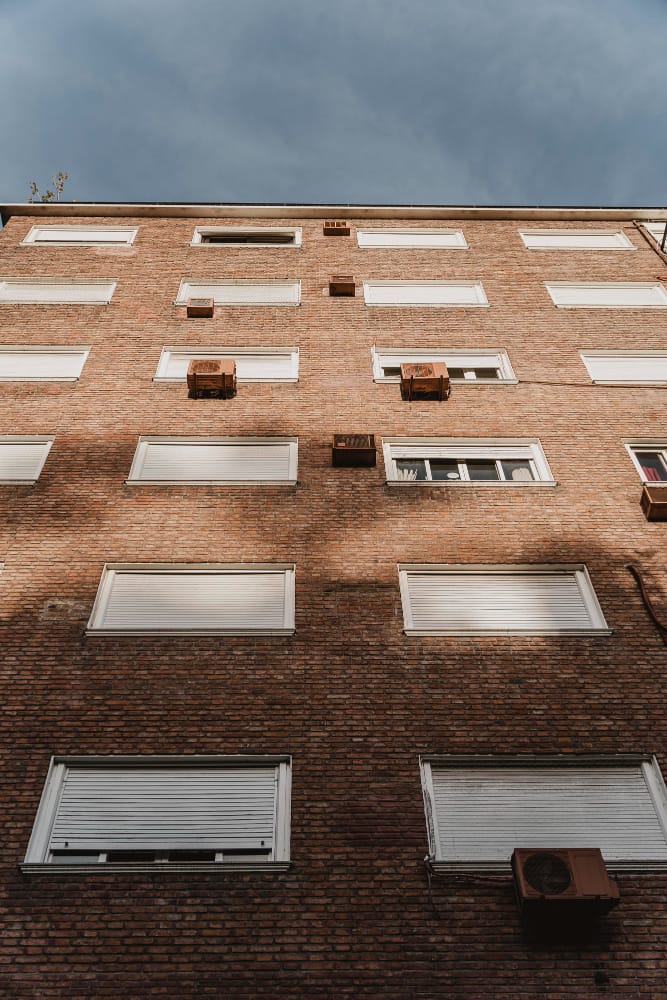A: Tenants can clean small mould patches caused by condensation, but landlords are legally responsible for addressing mould caused by structural issues like rising damp or poor ventilation. If they fail to act, tenants may be entitled to compensation through a housing disrepair claim.
It’s wise not to clean the mould straight away—instead, take clear photographic evidence and report it to your landlord. Since it’s usually the landlord’s legal responsibility to fix the root cause, failing to act could make you eligible for compensation through a housing disrepair claim.
Living in a mould or damp home isn’t just uncomfortable—it’s unhealthy and potentially dangerous. Many UK tenants are unsure whether they should tackle mould removal themselves or alert their landlord. This guide explains when you can clean mould, when to report it, and how to claim compensation if your landlord neglects their legal duties.
🧼 When Can You Clean Mould Yourself?
You may attempt to clean mould if:
- The mould is minor and surface-level, such as on windowsills or tiles.
- It appears due to daily activities like cooking or drying clothes without ventilation.
- There is no sign of structural damage, damp patches, or leaks.
Use a mould cleaner or white vinegar and proper ventilation. Always wear gloves and a mask to avoid inhaling spores.
However, even small mould growth may be a sign of a bigger issue. Document it with photos before attempting removal.
🧱 When Should You Contact the Landlord?
You must report mould to your landlord or housing provider immediately if:
- The mould keeps coming back despite cleaning.
- There is visible damp on walls, ceilings, or floors.
- You notice musty smells, leaks, or signs of rising damp.
- The mould is affecting multiple rooms or causing health issues.
By law, landlords in England and Wales (per the Landlord and Tenant Act 1985) must ensure the property is fit for habitation, which includes being free from damp and mould due to disrepair.
⚠️ What Happens If You Clean It and Don’t Report It?
If you remove mould without informing the landlord:
- You may hide symptoms of a larger issue, making it harder to prove your claim.
- The mould may return worse, especially if it’s due to poor insulation or structural faults.
- It could weaken your compensation case, as there’s no paper trail of your complaint.
Always report the problem in writing (email or letter) to create evidence.
📸 What to Do Before Cleaning or Reporting Mould
- Take clear photos of the affected areas.
- Note any damp smells, cold rooms, or cracked walls.
- Save any medical reports if you or a family member are experiencing symptoms.
- Write to your landlord explaining the issue and requesting urgent repairs.
- Keep a copy of all communications and a log of symptoms or worsening conditions.
💷 Can You Claim Compensation for Mould in Rented Housing?
Yes. You may be entitled to compensation for housing disrepair if:
- Your landlord was notified about the mould but failed to act within a reasonable time.
- The mould has led to health problems or damaged your belongings.
- You’ve experienced loss of enjoyment or emotional distress living in uninhabitable conditions.
🧾 What Can You Claim For?
You may be able to claim:
- ✅ General damages (distress, inconvenience)
- ✅ Special damages (cost of replacing clothes, bedding, or furniture)
- ✅ Medical expenses linked to mould exposure
- ✅ Loss of earnings if your health was affected
- ✅ Repair costs if you paid out of pocket to manage the mould
🩺 Mould and Health: When It Becomes a Serious Problem
Prolonged exposure to mould can lead to:
- Asthma attacks
- Skin and eye irritation
- Respiratory infections
- Worsened conditions in children or the elderly
- Psychological stress, including anxiety and depression
If your GP confirms that your health has been affected by your living conditions, this can strengthen your claim.
🏛️ How to Make a Claim for Damp and Mould
You can begin your claim by:
- Gathering evidence (photos, doctor’s notes, written complaints).
- Speaking to housing disrepair solicitors.
- Letting a legal expert assess if your landlord has breached their responsibilities.
- Filing a housing disrepair claim—often on a no win, no fee basis.
🤝 Let National Claims Help You
At National Claims, we specialise in connecting tenants with experienced housing disrepair solicitors who understand the legal responsibilities of landlords and housing associations. Whether you’re in a council home or a housing association property, we can help you:
- Start your claim with no upfront cost
- Get the repairs completed properly
- Seek compensation for the suffering you’ve experienced
✅ Conclusion
Don’t ignore mould. Cleaning it yourself might feel like the quickest fix, but if the cause is structural, it’s your landlord’s legal responsibility to act. Always report it, gather evidence, and know your rights. If they fail to help, you have the right to claim compensation.
📞 Think you’re eligible to claim?
Get in touch with National Claims today and speak to a housing disrepair expert who can help you claim what you’re entitled to—and take the first step toward a safer, healthier home.

We’re proud of our excellent customer reviews
We thrive on delivering exceptional service and ensuring our clients’ satisfaction. Don’t just take our word for it. Check out some of our independent reviews to see what our clients have to say.
Excellent

This firm is excellent, they sorted out my car pay out and injury claim very fast, they always communicate with you all the time.

My accident case was dealt with confidence and with great result of the outcome, especially James kept me informed all the time.

I was very impressed at the way my inquiry was treated. I was listened to attentively and everything I needed to know was explained to me.






